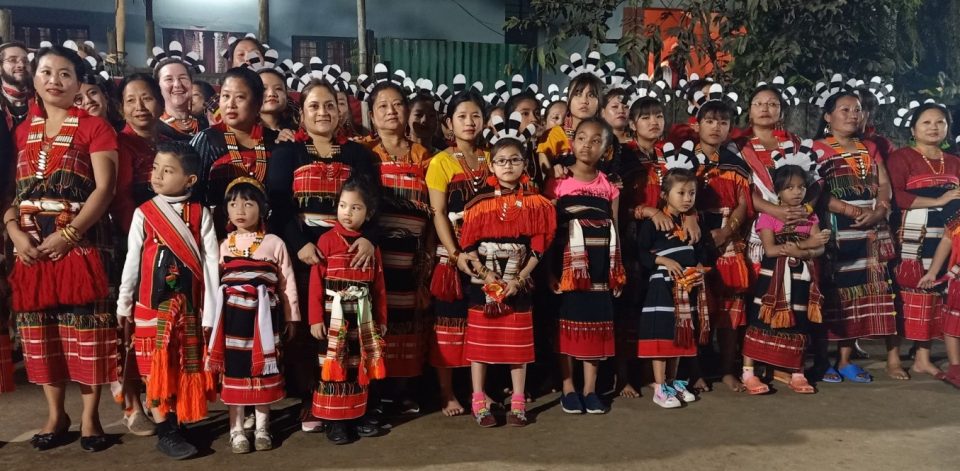
Poll results aside, Nagaland awaits its true litmus test in gender parity

As the people of Nagaland come to terms with the outcome of recently concluded Assembly polls that scripted history for electing two women legislators for the first time, the urban local body elections- slated for May 16, will act as a true indicator of a more meaningful role for women in state’s electoral politics.
The state is slated to hold its urban local body elections after about two decades.
Can Nagaland overcome entrenched patriarchy?
Due to resistance from patriarchal tribal bodies and public organisations, civic body elections could not be conducted in the state with the mandatory 33 per cent reservation for women.
The last elections to the urban bodies were held way back in 2004. But even at that time the reservation was not enforced.
Also Read: Khalistan model? Nagas looking for foreign ‘intervention’ for separatist movement
Attempts to implement the women reservation in the civic polls as per the provisions of the amended Nagaland Municipal Act 2001 met with violent protests in 2017.
Two people were killed, several others injured and government properties were burnt and damaged in the anti-reservation agitation across the state. The unrest forced then Nagaland chief minister T R Zeliang to resign.
Will the state uphold SC directive?
After returning to power earlier this month, the Neiphiu Rio-led government announced its decision to adhere to the Supreme Court’s directive to hold the civic body elections with stipulated women reservation.
The state election commission earlier this month notified election schedules for three municipalities and 36 town councils.
As per the schedule, filing of nominations for the May-16 elections will start on April 3. The results will be announced on May 19.
Assembly elections acting as fillip
The announcement came close on the heels of Salhoutuono Kruse and Hekani Jakhalu becoming first women to enter the 60-member state assembly. Kruse even got a ministerial berth, naturally first for any woman in the state.
Hailing their victories chief minister Rio tweeted: “You are taking forward the hopes of women and generations to come as changemakers and role models.”
Also Read: Assam: No info when delimitation process will be over, says Himanta
Naturally, the historic victories raised expectations about the state finally being able to hold elections to the civic body polls in accordance with the 74th amendment of the Constitution that stipulates 33 per cent reservation for women without any resistance.
When customs hinder gender mobility
That seems to be not happening soon. Some influential civil society organisations are still not ready to concede political power to females on the ground that the Naga customary laws do not allow women to equally participate with their male counterparts in political and socio-economic decision-making.
These organisations and tribal bodies have reportedly conveyed their objections to the state government.
Bone of contention: women reservation & tax on land and buildings
Apart from women reservation, the provision for levying tax on land and buildings in the amended Municipality Act is another point of contention.
The objecting organisations pointed out that since the land and all resources belong to the people of the state as per the land ownership rights granted under Article 371 (A) of the constitution, paying tax to the government would imply the land belongs to the government and not the people.
Sources said some tribal bodies and civil organisations told the government that they would not participate in the elections unless their twin objections were heeded.
They are demanding deletion of the two provisions from the Municipality Act before holding elections.
Ao Senden, the apex body of the state’s Ao tribe is among those influential bodies that have raised the twin objections.
Also Read: Rahul Gandhi convicted; what happens to his Lok Sabha membership?
Disclosing the organisation’s stand, general secretary of the Senden Imtipokyim told The Federal that women reservation as well as levying of tax on land and buildings contradict the rights and customary practices of Nagas protected by the Constitution of India.
“We stand by the decision we had taken after consulting people on the two issues in 2017. The same has been conveyed to the government again after the Ao Senen executive council reiterated it on March 20,” Imtipokyim said.
“It was also firmly resolved that in the event of the ULB elections being overbearingly forced upon the people in its current form, every Ao citizen shall be barred from participating in it to safeguard the greater interest and rights of the Naga people,” the Senden further said in a press communiqué.
The Nagaland government has so far remained firm on holding elections as notified.
The government’s Urban Development and Municipal Affairs adviser Zhaleo Rio said there would be no deviation from the decision.
The state government reportedly conveyed its position to the 60 legislators at a meeting on Tuesday. The meeting was convened to brief the legislators on the stand of the government on ULB polls.
Women’s group speak in one voice
The state’s women bodies too feel that it is high time that they get the reservation benefits.
“As a woman body, we are determined to get our rights, come what may,” said S Arenla Longkumer, president of the Watsu Mungdang, the powerful woman body of the Ao tribe.
She said as of now they are keeping a close watch on the situation, hoping that the stalemate would be resolved amicably.
If that does not happen, Nagaland will brace for another gender conflict akin to 2017 violence.


